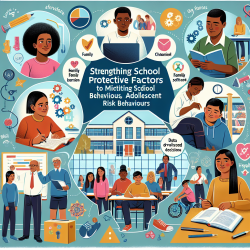The recent study, "British mental healthcare responses to adult homosexuality and gender non-conforming children at the turn of the twenty-first century," offers valuable insights for practitioners in the field of speech-language pathology and mental healthcare. The historical and philosophical analysis provided in the research can help professionals make data-driven decisions to improve outcomes for children.The study outlines the transition from aversion therapy for homosexuality in the 1970s to more recent debates about affirmative care versus exploratory therapy for gender non-conforming children. By understanding these historical contexts, practitioners can avoid repeating past mistakes and focus on evidence-based approaches that prioritize the well-being of children.Key takeaways from the research include:
- Historical Context: Understanding the evolution of mental healthcare responses helps clarify current debates and informs better clinical practices.
- Critical Realism: This philosophical approach emphasizes the importance of considering both discursive (subjective) and non-discursive (objective) aspects of reality, offering a balanced perspective.
- Exploratory Therapy: Encouraging cautious exploration rather than immediate affirmation can be more beneficial for gender non-conforming children, allowing them to navigate their identities without undue pressure.
- Data-Driven Decisions: Emphasizing the importance of collecting and analyzing clinical outcome data to inform best practices.
For practitioners, the study serves as a reminder to remain vigilant about the ethical implications of their work and to continuously seek out high-quality research to guide their practices. The complex interplay between historical, cultural, and clinical factors necessitates a nuanced approach to therapy, especially when dealing with vulnerable populations like gender non-conforming children.To read the original research paper, please follow this link:
British mental healthcare responses to adult homosexuality and gender non-conforming children at the turn of the twenty-first century.










